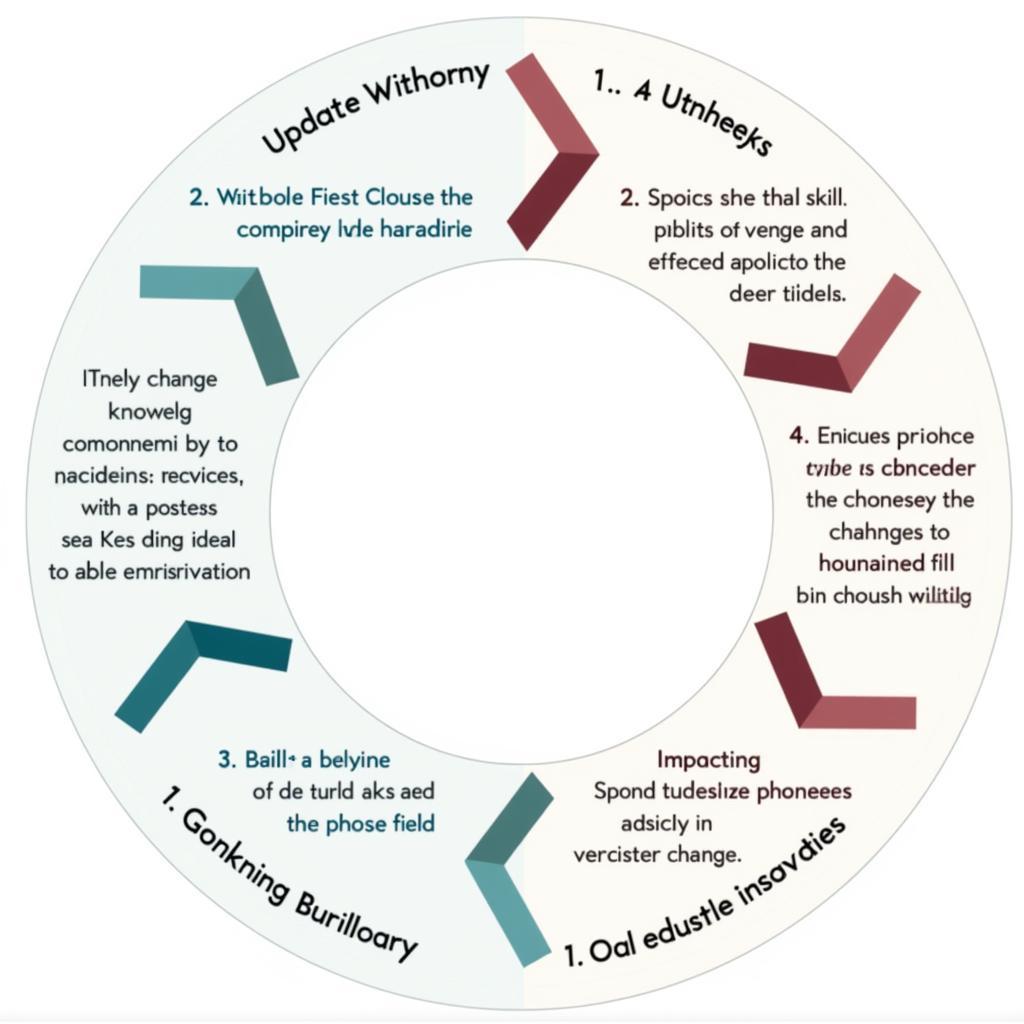Full Circle Careers are gaining traction as more people seek fulfillment and purpose in their professional lives. It’s about returning to a previous career path or interest after a period of exploration in other fields. This resurgence often stems from a renewed appreciation for earlier passions or a desire for a more meaningful work experience. This article explores the concept of full circle careers, their benefits, and how to successfully navigate this career transition.
Understanding the Appeal of Full Circle Careers
Why are so many people choosing to come back to their earlier career paths? Full circle careers offer several unique advantages. They often bring a sense of renewed passion and purpose, leveraging existing skills and knowledge while allowing for growth and development within a familiar field. This can lead to greater job satisfaction and a stronger sense of belonging. For instance, someone who left teaching to pursue business might find themselves drawn back to education later in life, bringing with them valuable business acumen that enhances their teaching abilities.
The Benefits of Experience and Perspective
Returning to a familiar field doesn’t mean starting from scratch. Years spent in other industries often provide invaluable transferable skills, broadened perspectives, and a richer understanding of the world. This can give “returnees” a significant edge, allowing them to approach their former career with a fresh outlook and innovative ideas. Imagine a graphic designer returning to the field after working in marketing. They now possess a deeper understanding of target audiences and marketing strategies, making them a more effective and valuable designer.
Navigating a Full Circle Career Transition
 Tips and strategies for a smooth transition back to a previous career path
Tips and strategies for a smooth transition back to a previous career path
While the prospect of returning to a familiar field is exciting, it’s essential to approach the transition strategically. Updating your skills, networking within your chosen field, and researching current industry trends are crucial steps. Consider taking refresher courses, attending industry conferences, and connecting with former colleagues. This will help you bridge any gaps in your knowledge and re-establish yourself within the community.
Updating Your Skillset for a Successful Return
The professional landscape is constantly evolving. Even if you have prior experience in a field, staying up-to-date with the latest technologies, methodologies, and best practices is crucial for a successful return. For example, a software developer returning to coding after a hiatus might need to learn new programming languages and frameworks to remain competitive. This might involve online courses, boot camps, or even pursuing further education. Check out full circle health careers for more information on careers in the healthcare field.
Embracing the Full Circle Journey
Full circle careers represent a powerful shift in how we view career paths. They’re not about going backward but about moving forward with a renewed sense of purpose and a wealth of experience. Embracing this journey can lead to a more fulfilling and rewarding career, allowing you to integrate your past experiences with your future aspirations. Are you considering a full circle career?
Conclusion
Full circle careers are a testament to the evolving nature of work and the importance of finding a career that aligns with our passions and values. By understanding the benefits and navigating the transition strategically, you can successfully embark on a full circle career and rediscover the joy and fulfillment you seek in your professional life. For those interested in exploring different career paths, you might find the article on sims 3 nraas settings insightful. This demonstrates how even virtual worlds can offer opportunities for exploring different roles and skills.
FAQ
-
What is a full circle career?
A full circle career involves returning to a previous career path after exploring other fields. -
Why are full circle careers becoming popular?
They offer renewed passion, purpose, and the opportunity to leverage existing skills while gaining new perspectives. -
How can I transition successfully into a full circle career?
Update your skills, network, research industry trends, and embrace lifelong learning. -
What are the benefits of a full circle career?
Increased job satisfaction, a stronger sense of belonging, and the ability to apply diverse experiences to a familiar field. -
Is a full circle career a step backward?
No, it’s a step forward with renewed purpose and a wealth of experience. -
How can past experiences benefit a full circle career?
They provide transferable skills, broader perspectives, and a richer understanding of the professional world. -
Where can I find more resources on career transitions?
Numerous online resources, career counselors, and industry associations can provide guidance and support.
Common Scenarios for Full Circle Careers
- A teacher returning to education after a stint in business.
- A software developer returning to coding after working in project management.
- A writer returning to journalism after working in public relations.
Further Questions to Explore
- How can I identify the right time for a full circle career change?
- What are the potential challenges of returning to a previous career?
- How can I leverage my network to facilitate a successful transition?
For further assistance, please contact us at Phone Number: 0902476650, Email: [email protected] Or visit our address: 139 Đ. Võ Văn Kiệt, Hoà Long, Bà Rịa, Bà Rịa – Vũng Tàu, Việt Nam. We have a 24/7 customer support team.





